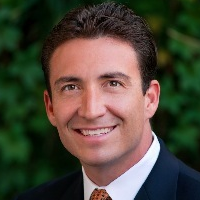Democrats Lose Supermajority in State Senate before They Even Get Started
 Michael Rubio
Michael Rubio
It had been 130 years since Democrats controlled both the state Senate and Assembly with at least two-thirds supermajorities. They accomplished that rarity in last November’s election, but it was short-lived.
Democratic State Senator Michael J. Rubio surprised his party and the governor when he announced last Friday that he would be resigning his seat to take a job as the manager of California government affairs for Chevron Corporation. Rubio, 35, said he wanted to spend more time with his wife and two young children, one of whom as special needs.
Democrats held a 29-11 margin over Republicans in the Senate after the election, but two Democrats won congressional races. That left the Dems with no margin to spare, and the loss of Rubio leaves them one vote short. Supermajorities are required to pass tax increases and certain other legislation, and override gubernatorial vetoes. Until voters amended the state Constitution in 2010, 27 votes were needed to pass a budget.
Brown has two weeks to announce a special election. Special elections for two other Senate vacancies in areas that lean Democratic are scheduled for March 12. Democratic state Senators Gloria Negrete McLeod and Juan Vargas gave up their seats in November when both were elected to the U.S. Congress. If no one gets a majority of the vote, a runoff would be held May 14.
Democrats control the Assembly 55-25, but could lose that supermajority soon. At least two of them are expected to run for the open state Senate seats and two others may run for other offices soon.
Democrats have spoken for years about scaling back Proposition 13, passed in 1978, but needed a supermajority to make even a credible attempt at loosening its tax restrictions. Governor Jerry Brown and Democratic leaders have spoken often about not overplaying their hand and alienating voters, but it was widely expected that the opportunity to pass legislation otherwise out of reach would not be totally ignored.
Rubio was also a key figure in discussions to revamp the landmark California Environmental Quality Act (CEQA). Senate Pro Tem Darrell Steinberg introduced Senate Bill 731 on Friday that attempts to streamline the environmental review process for projects and is almost certain to be attacked from all sides of the issue.
Rubio, who represented parts of four counties in the Fresno area where oil and business interests have clout, was seen as a conciliatory figure by Republicans. Senate Republican leader Bob Huff told the Orange County Register that although he thought Rubio would be an ally of the GOP, his leaving the Senate “would be a wonderful thing until the special elections kick in.”
–Ken Broder
To Learn More:
California Democrats Lose Veto-Proof Edge in State Senate (by Michael B. Marois, Bloomberg)
Democrats Lose Senate Supermajority with Resignation (by Brian Joseph, Orange County Register)
Senate Leader Steinberg Intros CEQA Bill Hours after Rubio Resigns (California Economic Summit)
California Democrats’ Supermajority Powers Will be Short-Lived (by Steven Harmon, San Jose Mercury News)
- Top Stories
- Controversies
- Where is the Money Going?
- California and the Nation
- Appointments and Resignations
- Unusual News
- Latest News
- California Forbids U.S. Immigration Agents from Pretending to be Police
- California Lawmakers Urged to Strip “Self-Dealing” Tax Board of Its Duties
- Big Oil’s Grip on California
- Santa Cruz Police See Homeland Security Betrayal in Use of Gang Roundup as Cover for Immigration Raid
- Oil Companies Face Deadline to Stop Polluting California Groundwater





